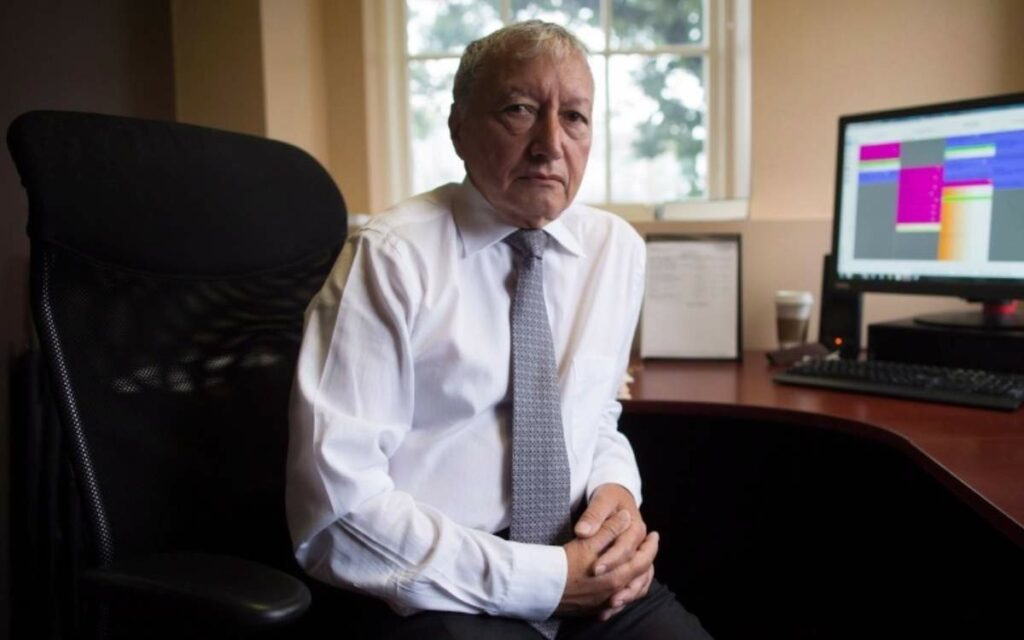
Earlier this month, the Supreme Court of Canada dismissed an appeal from Dr. Brian Day of the Cambie Surgery Centre in BC. For years, Dr. Day (pictured) has advocated for Canadians’ right to pay for private medical care. Photo credit: The Canadian Press/Darryl Dyck
Canadians know their health care system is in rough shape. Thankfully, the extra burden placed on the system during the pandemic has abated, but the fundamental problems of lack of sufficient hospital and clinic capacity, long wait times for most procedures and shortages of medical professionals have not gone away. And an aging population and record-high immigration will ensure that pressure on the system will continue in the absence of quick action on the part of provincial governments.
The dire state of health care has led Canadians to be more receptive to the addition of private clinics and other resources into the system than they have been in the past. There is already a considerable amount of private sector participation, notably in the form of testing and diagnostic laboratories, some specialized private clinics, and doctors’ offices, and none of this has taken away from the fact of universal health care. Primary health care has largely remained as a government monopoly, and that is where most of the problems in the system lie.
Some provinces have been experimenting with more private participants in recent years, and other provinces have just started to do so lately as the political climate has become more favourable and Canadians increasingly realize just throwing more money at a broken system – which is the main thing governments have done to date – does not work and new approaches are needed.
Dr. Brian Day of the Cambie Surgery Centre in BC has been a tireless champion of fighting for Canadians to be able to access private clinics at their own expense if the wait times in the public system are too long.
His latest legal challenge along these lines was an appeal of a BC court decision that claimed the public system would be seriously undermined if patients had the option of a private provider. This court decision effectively meant that if some Canadians were permanently disabled or even died on waiting lists, that was acceptable as long as the public system was preserved. Day then appealed the BC court’s decision to the Supreme Court of Canada which recently declined to hear the appeal – in other words the Court took the coward’s way out. The Supreme Court does not make public its reasons for declining to hear a case.
What is perverse is that in 2005, the Supreme Court heard a case with very similar issues – the famous Chaoulli case – and reached the opposite conclusion. The Chaoulli decision struck down a ban on private insurance in Quebec for medically necessary care, and since that time there has been some increase in private providers in that province.
The composition of the Court has changed since 2005, but it doesn’t seem logical that two cases with such similar elements would be treated so differently. Perhaps the Court in this latest instance declined to even hear the case because if they came up with a decision at odds with the prior Chaoulli case, it would cause considerable disruption in legal consistency.
There are many nonsensical elements to this entire issue. Well-off Canadians already enjoy the ability to travel to other countries to access timely health care. The people that suffer from these decisions from the courts are those who can’t afford “health care tourism” and are stuck with the failed Canadian public system. It is also perverse that private clinics like Dr. Day’s largely cater to people such as non-residents of Canada, workers’ compensation cases, federal employees, prisoners, and professional athletes that experience injury. Hardly a fair system.
The growth of private care is happening in most provinces by default in any case, so it has almost reached the point that it doesn’t matter as much what the courts decide. And the evidence shows that once Canadians experience care in a private clinic any initial resistance to private providers disappears quickly.
After decades of fear that private sector players would damage Canada’s universal health care system, it is very positive that the taboo is finally being lifted. The groups who are still fighting more private provision are mostly the public sector unions and their supporters who fear losing their primary care monopoly. As has been shown around the world, health care that properly combines private and public providers, still within a single payer system where no one need pay out-of-pocket, produces higher quality health care as competition improves everyone’s performance.
It’s a shame the Supreme Court didn’t take a more expansive view and have let the vast majority of Canadians down once again.

She has published numerous articles in journals, magazines & other media on issues such as free trade, finance, entrepreneurship & women business owners. Ms. Swift is a past President of the Empire Club of Canada, a former Director of the CD Howe Institute, the Canadian Youth Business Foundation, SOS Children’s Villages, past President of the International Small Business Congress and current Director of the Fraser Institute. She was cited in 2003 & 2012 as one of the most powerful women in Canada by the Women’s Executive Network & is a recipient of the Queen’s Silver & Gold Jubilee medals.






